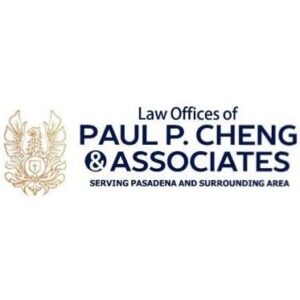Employment Law and Compliance Highlights from the Law Offices of Paul P. Cheng, Esq
New Resources Announced for 2023 EEO-1 Data Collection
The Equal Employment Opportunity Commission (EEOC) has launched updated resources for this year’s EEO-1 data collection. The new materials include the 2023 EEO-1 Component 1 Instruction Booklet and Data File Upload Specifications. Employers required to comply should note that the filing period for the 2023 EEO-1 Component 1 data collection opens on April 30, 2024, and will close on June 4, 2024.
DOJ Announces Increased Penalties for Immigration Violations
In a recent update, the Department of Justice (DOJ) has issued a final rule that raises the penalties for violations under the Immigration Reform & Control Act (ICRA), in response to inflation. The adjustments see an increase in the minimum penalty for substantial Form I-9 violations from $272 to $281, while the maximum penalty has risen from $2,701 to $2,789. This update also affects the penalty ranges for several violations including employing undocumented workers, engaging in unfair documentary practices, and other illegal employment practices related to immigration. These new penalty amounts will be effective for penalties assessed after February 13, 2024, for violations that occurred post-November 2, 2015.
CALIFORNIA
Long Beach Sees Voter Approval for Hotel Worker Wage Increase
In a recent ballot, Long Beach voters decided to raise the minimum wage for hotel workers significantly. Starting July 1, 2024, the new minimum wage will be $23.00 per hour, with planned increases that will elevate it to $29.50 per hour by July 2028. These increases will continue to be adjusted for inflation annually. This change affects employees working directly for hotels as well as those employed through contracted service providers.
Los Angeles County Implements Fair Chance Ordinance
The Los Angeles County Board of Supervisors has put into effect the Fair Chance Ordinance. This new law, active from March 28, 2024, mandates specific notification and background check processes for employers with five or more employees in the county’s unincorporated areas. It restricts what can be included in job advertisements and bars inquiries into criminal histories prior to a conditional job offer unless explicitly required by law. Employers must adhere to a detailed adverse action process if they decide against hiring based on criminal background checks and are required to keep records for four years. Non-compliance could lead to fines, and workers have the right to sue.
San Francisco Announces Deadline for Employer Annual Reporting
San Francisco’s Office of Labor Standards Enforcement (OLSE) reminds that the deadline for the 2023 Employer Annual Reporting Form is May 3, 2024. This requirement applies to employers under the Fair Choice Ordinance and the Healthcare Security Ordinance, which necessitate annual expenditure on employee healthcare. The report, available since March 26, 2024, is mandatory and non-compliance will result in penalties.
New Resources for Fast-Food Employers on Minimum Wage Law
The California Department of Industrial Relations has launched a new webpage with information for fast-food employers about the recently implemented $20 minimum wage under AB 1228, effective April 1, 2024. This resource provides a downloadable wage order supplement and FAQs covering various topics, including exemptions and the role of the Fast-Food Council in setting future standards.
California Exempts More Fast-Food Outlets from $20 Minimum Wage
Governor Newsom signed AB 610, revising the scope of fast-food establishments affected by the $20 minimum wage mandate. Effective immediately as of March 25, 2024, the exemption now includes fast-food outlets within or associated with hotels, event centers, grocery stores, theme parks, museums, gambling establishments, and airports among others. This adjustment is seen as a response to concerns from the restaurant industry about the broad application of the previous wage law.
This newsletter shares information on legislative and regulatory developments that may affect your business. Consultation with your Human Resources Professional, and in some cases legal counsel, is recommended to address any questions or concerns you may have that are related to these developments. As always, it is your obligation as the employer to ensure your compliance with applicable laws and regulations.. Please contact our team at (888) 356-4937 or info@pprclaw.com with any questions regarding state-specific guidance or application to your workplace.
For additional info please contact us at 888-356-4937.







